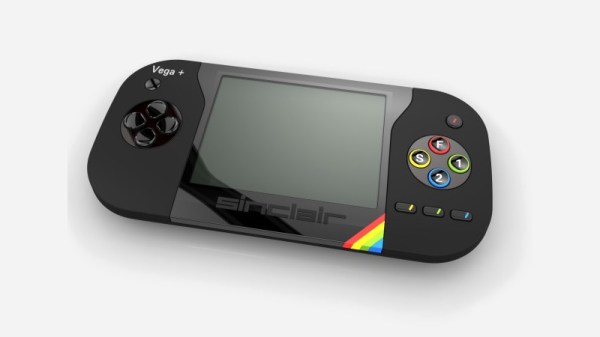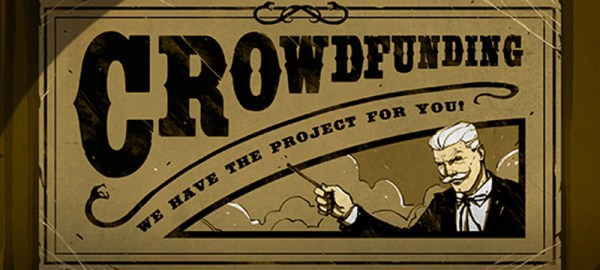It’s not a good time to be a backer of the crowdfunded Sinclair ZX Vega retro console. After raising a record sum on Indiegogo, a long series of broken promises and missed dates, and a final loss of patience from the crowdfunding site, it has emerged that the owner of the Sinclair and ZX brands is to withdraw the right to use them from the console.
The Vega itself should have been a reasonable proposition, a slick handheld running the FUSE Spectrum emulator rather than Z80 hardware, and from Retro Computers Limited, a company that boasted a 25% ownership from Sinclair Research and thus Sir Clive himself. The sorry tale of its mishandling will probably in time provide enough information for a fascinating book or documentary in itself, but one thing that has come to light in the BBC’s reporting is the fate of those Sinclair brands. They famously passed to Amstrad in the 1980s, a move that gave us the Spectrum +2 and +3 with decent keyboards and built-in tape and disk drives, but long after the last Spectrum had rolled off the production line they passed with Amstrad’s set-top-box business to the satellite broadcaster Sky, who are now responsible for pulling the plug.
This is a general news story as much as a hardware story as there is little by way of a hack to be found beyond the realisation that you could almost certainly roll your own with a Raspberry Pi, a copy of FUSE, and a 3D-printed case. But it’s a fitting follow-up to our previous reporting, and unless something unexpected happens in the Retro Computers boardroom it’s probably the last we’ll hear of the product. In an unexpected twist though they are reported to have shipped a few Vegas to backers in recent days, and we’ll leave the final word to the BBC’s quote from [David Whitchurch-Bennett], one of those recipients.
“The buttons are absolutely awful, You have to press so hard and they intermittently stop working unless you apply so much pressure.”
From where we’re sitting, remembering the dubious quality of some of the keyboards on original Spectrum products, we think that it might have more in common with the original than anyone is willing to admit.












